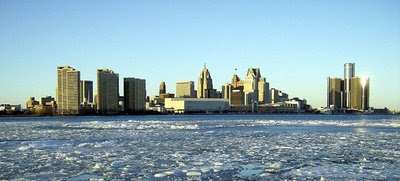Recently, someone mentioned to me that talk about our Christian hope for the completion of history--our Savior’s glorious return at the end of time--was not something learned as a young person. Our Christian hope for the completion of history St. Paul proclaimed with his phrase,
the coming of our Lord Jesus the Messiah. Advent continues the attention given to the Christian hope for the glorious
coming of our Lord Jesus in the liturgies of the weeks before it. Even as Advent prepares us to celebrate the birthday of Jesus in Bethlehem, Jesus’ first arrival, Advent continues to recall our Christian hope of his glorious return at the end of time.
Thus, you and I live between two advents of our Messiah. Our purpose living between

them is to testify to the
light, Jesus’ life with us, in us and for us. We are prone to tolerate darkness more than
light. If Christian
light is Jesus’ life with us, in us and for us, then darkness is the absence of Jesus’ life. Humans often hamper and block Jesus' life for one another. Two ways darkness registers in daily living are dilemmas and injustices. An example each of our dilemmas and injustices.
In cities across the country, including those of northeastern Ohio, some service-businesses attract immigrants with promises of work but do not make good on their promises. Another: women, both wed and unmarried, are about to give birth far from family and without access to money and the support that is their due. The Catholic Church through various agencies helps supply basic necessities of life to people denied work and health care to anxious parents-to-be.
Today’s immigrants and anxious parents-to-be incarnate the
poor, the
brokenhearted,
captives and
prisoners, who are among us in many ways. They are not far, nor did they only inhabit the ancient Mediterranean world, like Joseph and Mary, who migrated when she was a parent-to-be and a as a young mother.
All of us fit in our own ways into the categories of the
poor, the
brokenhearted,
captives and
prisoners of whom the prophet sang. Each of us experiences inadequacy, bruised if not broken hearts, and we are held hostage by forces within and outside our selves. Within: we are enslaved by our sinful tendencies. Without: societal pressures straight-jacket us before we’re even aware they are affecting us.
Advent offers us the opportunity to acknowledge the way people, indeed populations, are held hostage, even ignored and forgotten. Icy chill isn’t limited to the air; another chill is part of the climate of the human heart. Nor does darkness drag on in our shorter hours of day-
light only; more real darkness grips our hearts and minds as well. More real darkness of every kind reminds us that we need saving.
Advent is
Light piercing our darkness. Advent isn’t about doom, but about both our Christian hope for the completion of history and that Jesus’ life is with us, in us and for us to help us conquer our interior and incapacitating darknesses with him. No one else is effective to warm and brighten our true selves and make us servants of Jesus’ mission.
Advent, though, is not an end in itself. Advent does not fixate on the cold, the dark, the brokenness and what robs our spirits and deprives our bodies. Far from it! Our liberty is rooted in God’s reliability. God illumines our darkness by divine and most real
light.

Illumined people are God’s hands filling up the hungry, tending bruises, welcoming strangers, and setting free hostages of all sorts. With that loving attention we make real, for those who need it, God’s embrace and God’s fidelity.
Advent opens us to the glory we call Christmas, not because Jesus needs to be reborn each December, but because we need rebirth, renewal and new dispositions each day. To know our need for innermost renewal leads us to
rejoice always. God desires we be renewed personally and do our part to renew our world with Jesus.
In your daily 15 minutes with Jesus this week, ask John the Baptizer to present you to Jesus. Speak with Jesus about ways you experience him enlightening your life and welcome him into every dark corner of your heart and mind. Be as intent as you can. Close by saying slowly the
Lord’s Prayer: it models Christian intention, desire and purpose. Jesus’ prayer enlighten us until he fulfills our Christian hope for the glorious
coming of our Lord Jesus.
____________________________________________
Wiki-image by Jorge Noriega Sevilla of lamp in Maranatha sanctuary is used according to the Creative Commons Attribution ShareAlike 2.5 license. Wiki-image of an icon of the Baptizer is in the public domain.
